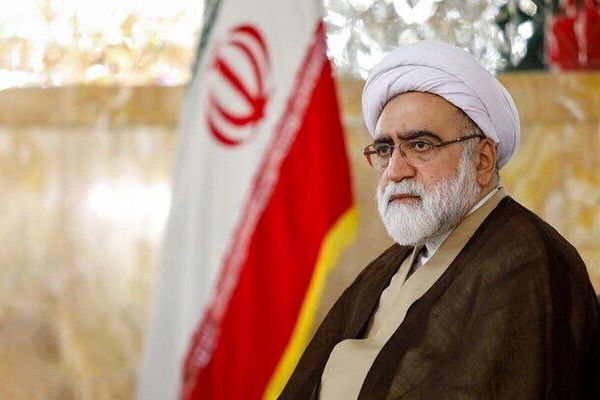Stating that knowing Imam Reza (AS) is not limited to pilgrimage, the Guardian of the Holy Shrine emphasized: The character, character, and style of interaction of the Imam with the people, the oppressed, and the enemies of religion must be fully transmitted to today's generation.
According to Ashura News, quoted by Shahr-Ara News; Ayatollah Ahmad Marvi, today, 11 Farvardin 1404, in the thanksgiving ceremony of the 18th year of the program Under the Shadow of the Sun and the public celebrations Under the Shadow of the Sun in the Quds Hall of the Razavi Holy Shrine, emphasized in his speech the importance of transmitting the lifestyle, social character, and political and spiritual orientations of Imam Reza (AS) to society.
In the company of cultural activists and organizers of religious programs during the Decade of Dignity, he stated that these programs should not be limited to just one dimension of the blessed existence of the eighth Imam, and stated: Efforts should be made to explain and introduce the comprehensive personality of Imam Reza (AS) and his spiritual and moral positions to the people through these divine occasions.
Referring to the statements of the Supreme Leader regarding the three main axes of the life of Imam Reza (AS), Ayatollah Marvi said: The Supreme Leader of the Revolution emphasizes that three basic axes should be considered in understanding Imam Reza (AS); First, the spiritual authority of the Imam (AS); second, his lifestyle and the way he interacted with people, especially the poor and needy; and third, his struggle against the arrogant and oppressors.
Emphasizing that transferring these concepts to society is an important mission for cultural activists, he added: Imam Reza's (AS) conduct in socializing, helping the oppressed, and fighting against oppression must be implemented in a precise, documented, and effective manner in the form of cultural and artistic programs, book exhibitions, and social projects.
Referring to the historical narrative of the journey of two people from Medina to Nishapur and the difference in the ruling on the Qasr and Tamam prayers, the Custodian of the Holy Shrine emphasized the role of intention in religious and social behavior and said: Imam Reza (AS) issued a different ruling based on the intentions of individuals, because one had come for the purpose of pilgrimage and the other for worldly affairs. This indicates the depth of religion's view of individuals' intentions, goals, and orientations. This same perspective should also be present in our behavior and political orientation.
He added: How can a Shiite and follower of the Ahl al-Bayt (AS) be indifferent to the oppression and crimes that occur in every corner of the world? Can a believer's heart remain calm towards the pain and suffering of Muslims?
In another part of his speech, Ayatollah Marvi referred to the necessity of documenting the memories and spiritual experiences related to Imam Reza (AS) and said: These valuable memories should be recorded accurately and documented and made available to the public in the form of media, written and visual works so that they can be a source of inspiration for future generations.
Emphasizing the connection between the life of the Imam (AS) and social service, he suggested: What is wrong with building dozens of houses for the needy in each province under the Decade of Dignity programs? Or providing dowries for families who cannot afford them, with the blessings of the blessed name of Imam Reza (AS)? These tangible services bring the practical life of the Ahl al-Bayt (AS) into people's lives.


Post a comment